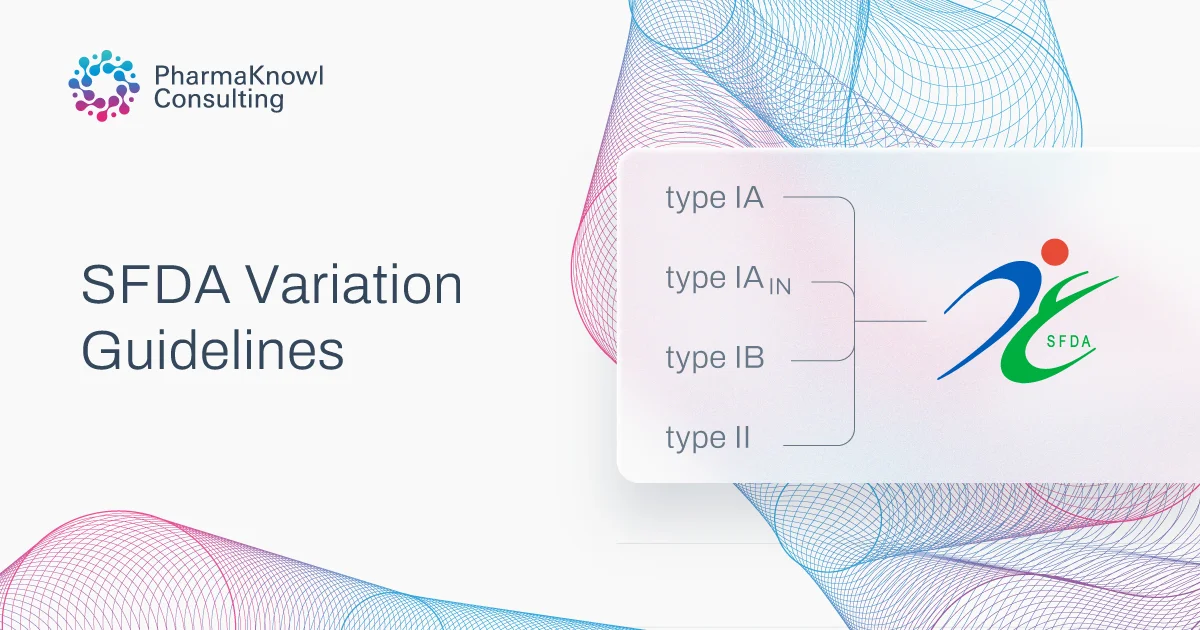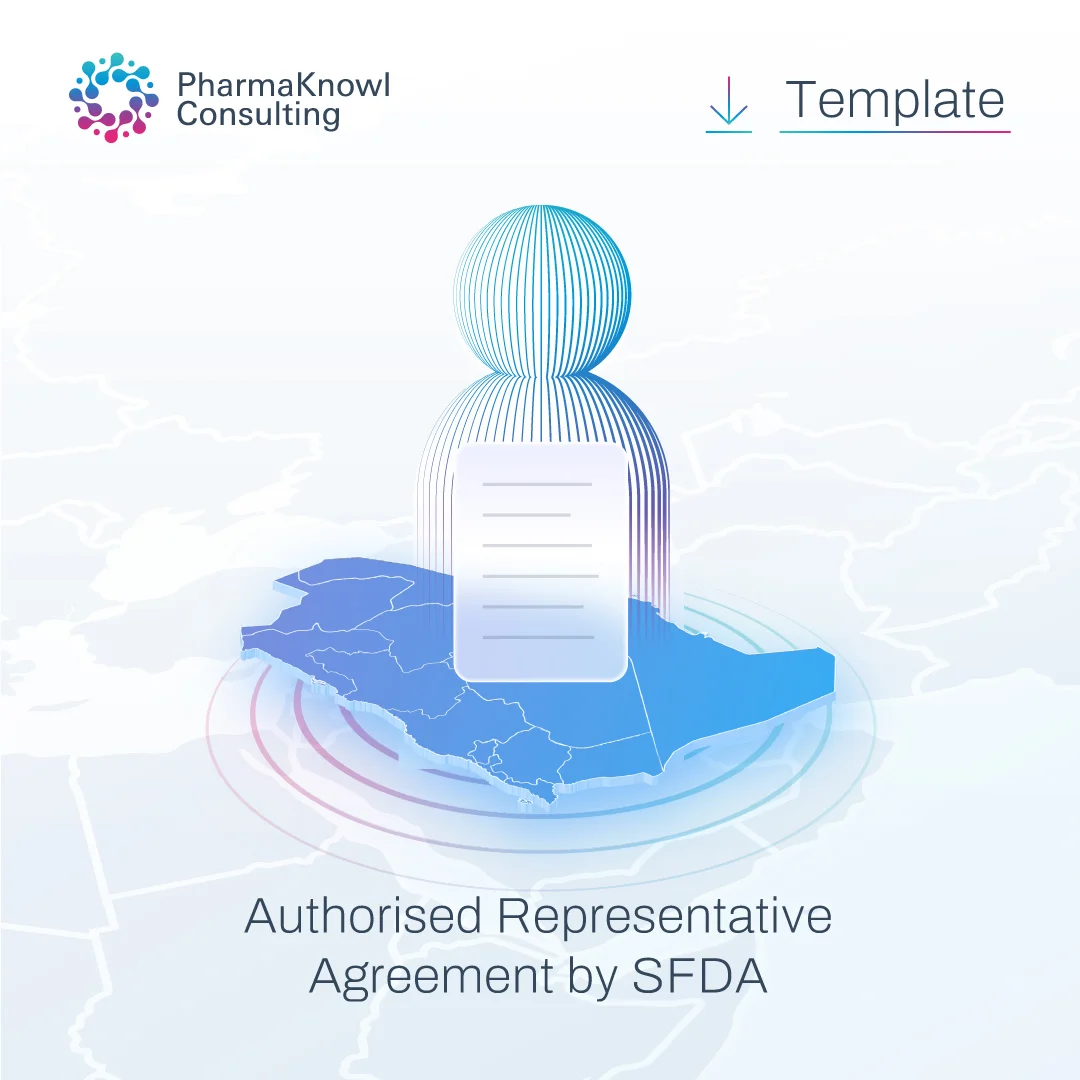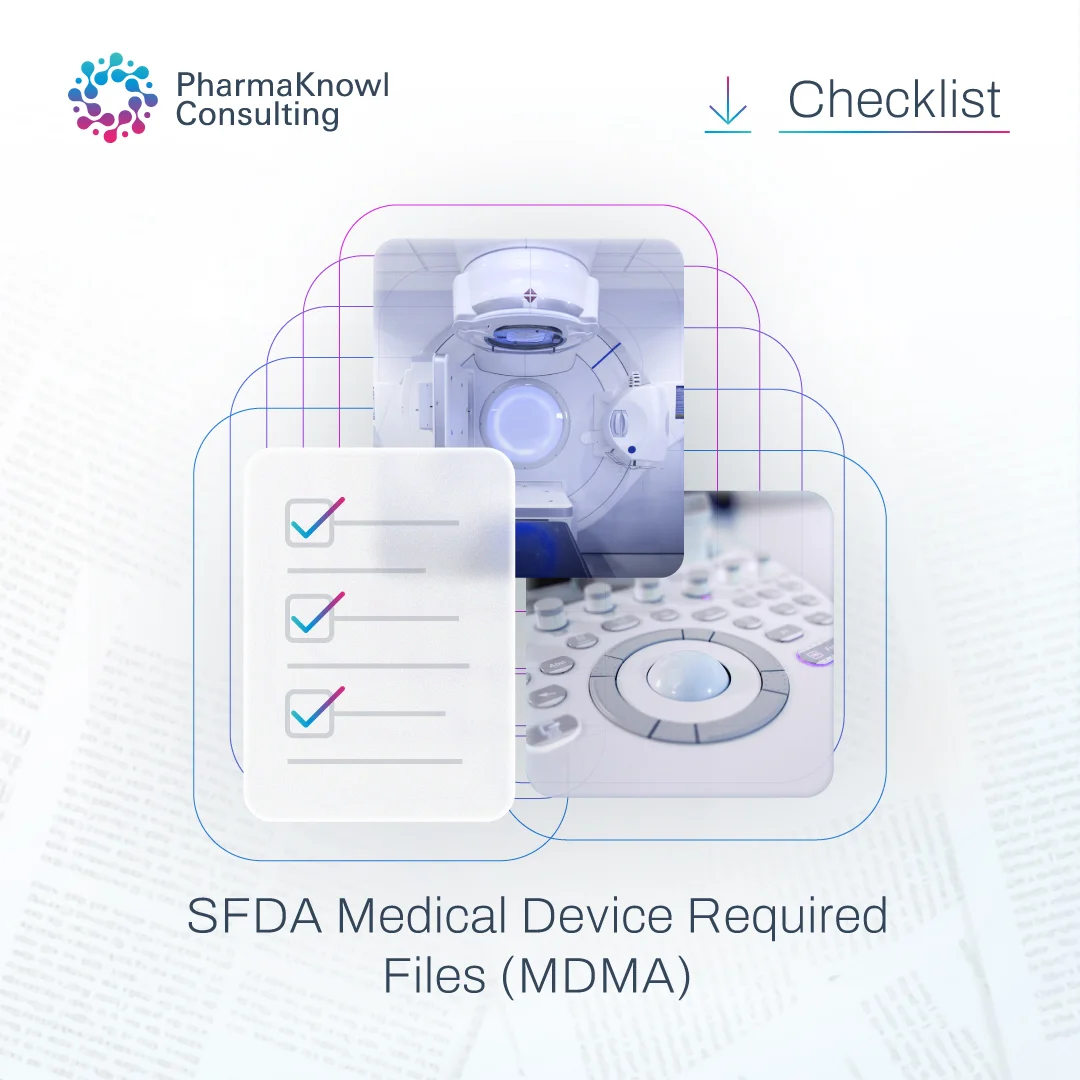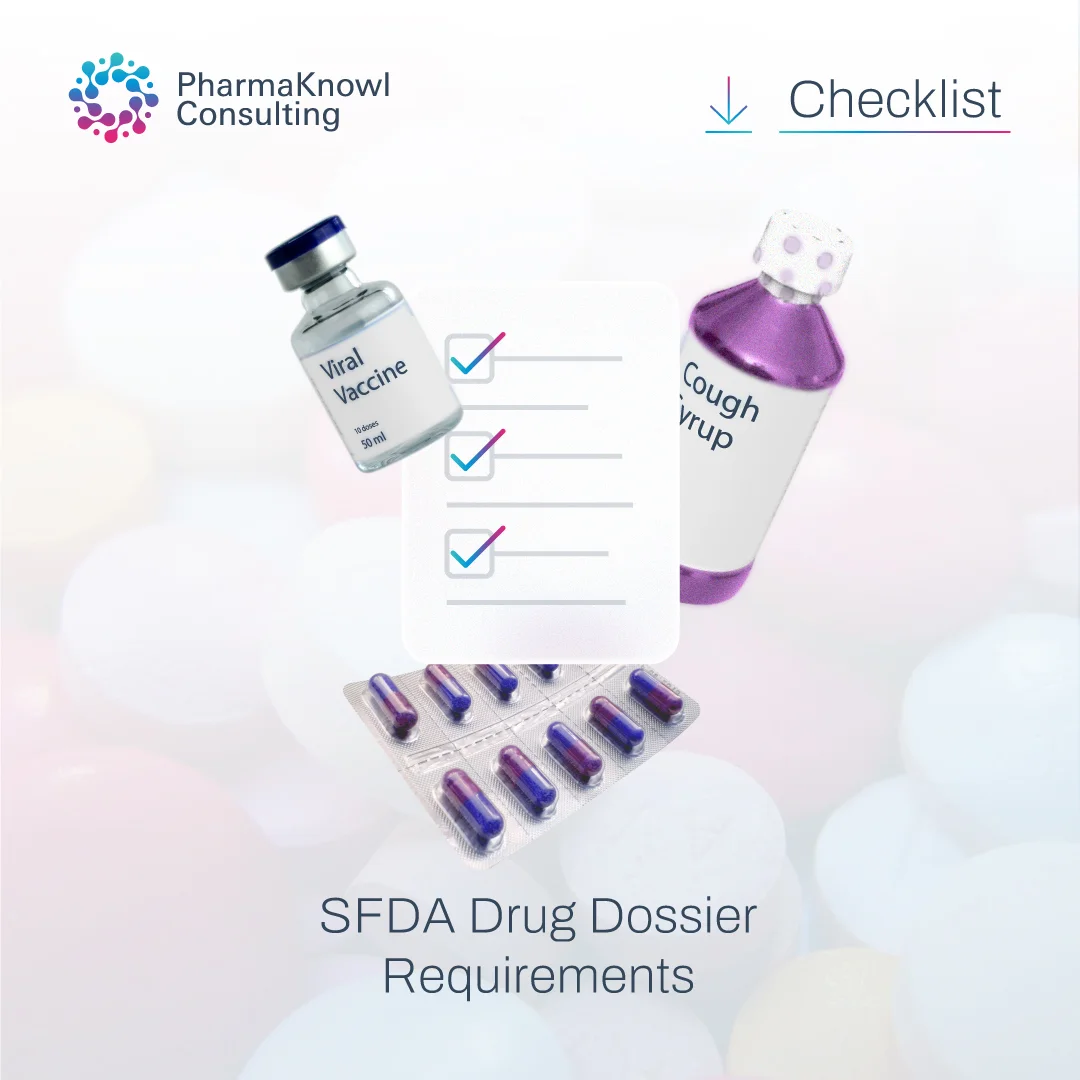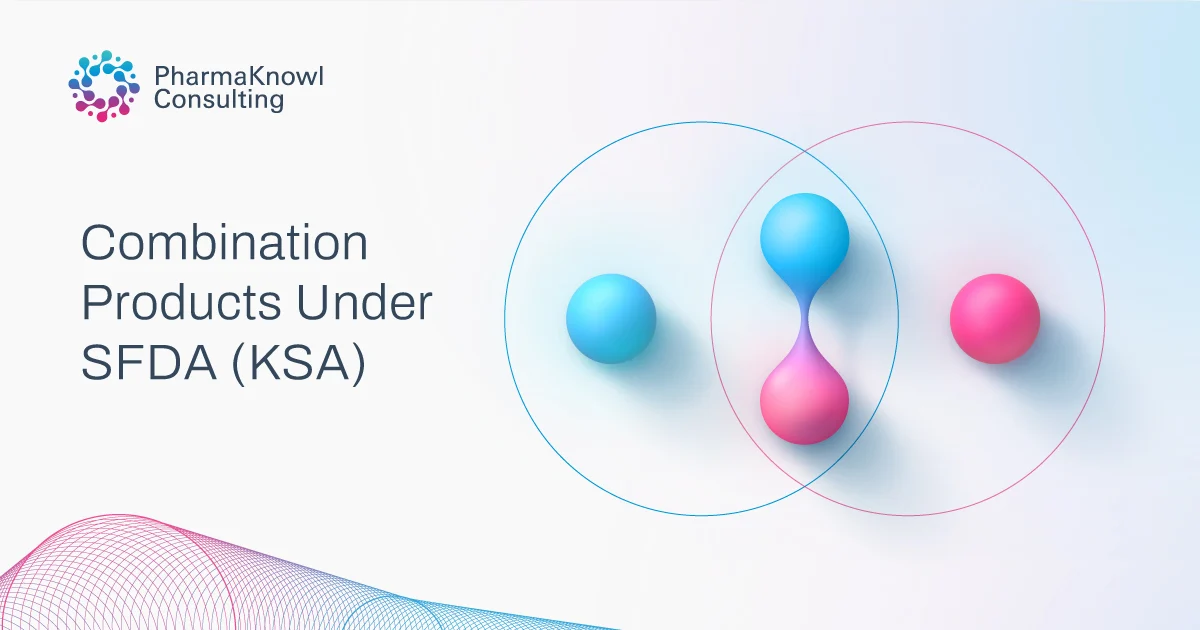Pharma companies must comply with the latest SFDA variation guidelines to ensure compliance with the drug life cycle management regulations in Saudi Arabia. Since the SFDA regularly updates its way of accepting and evaluating drug variation submissions, the regulatory professionals must apply the latest version of the SFDA Variation Guideline (also published as GCC variation guidelines).
The variation application is a request from the MAH to the SFDA to change or update the registered drug information. It is a post-approval regulatory procedure that frequently takes place after the SFDA drug registration to ensure that the amendments to the registered drug file are approved for marketing.
This post will discuss the latest version (Guidelines for Variation Requirements v 6.3).
Table of contents
Variation Guidelines
These guidelines describe the types of variations and the requirements for submitting them to update the registered drug file. They also cover the administrative and CMC changes for manufacturers, MAH, API, and drug products.
The changes vary from low to high potential risks concerning product quality. The manufacturer is encouraged to utilize a risk-based regulatory processes system for;
(a) Requesting approval for any major changes from the regulatory authority before implementation.
(b) notifying the regulatory authority of minor changes after implementation.
The above system includes the following categories for regulatory communications, with one or more levels in each category according to when we need to notify SFDA of any post-approval changes.
Notification Only
These variations do not require prior approval. They are moderate to low-risk changes that have no high impact on the product’s quality, safety, and efficacy. According to the guidelines, these changes are communicated to the regulatory authority as a formal notification within a defined period before or after implementation.
Requires Pre-Approval
On the other hand, major changes require approval before implementation. They heavily impact the product’s quality, safety, and efficacy. Therefore, the MAH should submit a detailed eCTD dossier to describe and justify the variation. The approval might require an SFDA GMP inspection for some variation types, such as resourcing from a new manufacturing site.
Variations Types
Starting in version 6.1 of the SFDA variation guidelines, the SFDA introduced a new type called IAIN, a new level that SFDA placed between the already known two types, type IA and IB, and is considered a minor variation.
In the section below, we will detail all the variation types:
Type IA Variation
Such minor variations do not require prior approval before implementation; this is referred to as the “Do and Tell” procedure. Type IA variations, however, can be compiled in a single variation application to be submitted to the SFDA no later than January 31st of each year. The variation application for every product should indicate the following:
- All IA variations have been implemented during the previous year.
- Date of implementation of each variation.
Type IAIN Variation
It should be submitted immediately, within 14 days after implementation. Note that it is possible to group IA with IAIN variations as follows:
Grouping Type IA/IAIN changes
Type IA or IAIN variation can be grouped for one medicinal product or affect several medicinal products from the same MAH.
Grouping Type IA/IAIN with other types of variations
Type IA/IAIN can also be grouped with Type IB and Type II variations. Such grouped submissions will follow the review timeline of the highest variation in the group.
Type IB
Under this type of variation fall the changes that are neither Type IA nor Type II. This means that the change can be considered Type IB when Type IA conditions are not met, and the change is not listed as one of Type II major changes.
Type IB variations must be submitted to the authority by MAH before implementation, but they do not require formal approval. However, the MAH must wait 60 working days to ensure the application is deemed acceptable before implementing the change (“Tell, Wait, and Do” procedure).
Grouping Minor (IB) Variations
It is also possible for an MAH to group a Type IB variation with other variation(s) for the same product, like Type IA and Type II. Such grouped submissions will follow the review timeline of the highest variation in the group.
Type II
These are the major variations that may significantly impact the Quality, Safety, or Efficacy of a medicinal product and require prior approval before implementation. For this major type, there are no specific documents or requirements by the SFDA. For example, if the change is in a manufacturing site, the whole module 3 needs to be resubmitted with the variation.
Variation Timelines
| SFDA Dept | No. of waves & Response timeline |
| Submission Validation Notes | 30 working days. |
| Evaluation & Inspection | 60 working days. |
| Appeal against the rejected variation | 60 calendar days |
| Type IA | To be submitted by January 31st, covering last year’s variations. |
| Type IAIN | This is to be submitted no later than 14 days after the implementation date. |
| Type IB | Do, Wait, and tell. (Wait for 60 working days) |
| Type II | This is to be submitted no later than 14 days after the implementation date. |
Examples from the Guidelines
Administrative Changes
| Type of Change | Subset of change | Type of Variation |
| Change in the Marketing Authorization Holder | Change in the name and/or address of the marketing authorization holder | IAIN |
| Change in the Marketing Authorization Holder | Transfer the product to a new marketing authorization holder (different legal entity) | IB |
| Remove agent name from the artwork (Mock-up) | NA | IA |
| Change in the (invented) name of the medicinal product | NA | IB |
| Change in the name and/or address of a manufacturer of the finished product, including quality control sites. | NA | IA |
| Change in the name and/or address of a manufacturer of the finished product, including quality control sites | The manufacturer is responsible for batch release | IAIN |
| = | All other site types | IA |
Active Substance Changes (API)
| Type of Change | Subset of change | Type of Variation |
| Change in the manufacturer of a starting material/reagent/intermediate used in the manufacturing process of the active substance or change in the manufacturer of the active substance, where no Certificate of Suitability is available. | The proposed manufacturer is part of the same organization as the currently approved manufacturer. | IB |
| = | Change in the manufacturer of a starting material/reagent/intermediate used in the manufacturing process of the active substance or change in the manufacturer of the active substance, where no Certificate of Suitability is available. | II |
| Change in the active substance’s re-test period/storage period or storage conditions. | Changes in the manufacturing process of the active substance | IA |
| = | Minor change in the manufacturing process of the active substance. | II |
| Change outside the limits of the approved specifications range for the active substance. | Up to a 10-fold increase compared to the currently approved batch size | IA |
| = | The new certificate from a new manufacturer (either a replacement or an addition). | IA |
| Change in batch size (including batch size ranges) of the active substance or intermediate used in the manufacturing process of the active substance. | Tightening of specification limits | IAIN |
| = | Addition of a new specification parameter to the specification with its corresponding test method | IA |
| = | Change in the specification parameters and/or limits of an active substance, starting material/intermediate/reagent used in the manufacturing process of the active substance | II |
| Change in the active substance’s re-test period/storage period or storage conditions. | Minor changes to an approved test procedure | IA |
| = | Change in test procedure for the active substance or starting material/reagent/intermediate used in the manufacturing process of the active substance | IB |
| Other changes to a test procedure (including replacement or addition) for the active substance or a starting material/intermediate | Change in the re-test period/storage period or storage conditions of the active substance. | IB |
| Certificate of Suitability | The new certificate from a new manufacturer (replacement or addition). | IAIN |
Finished Product Changes
| Type of Change | Subset of change | Type of Variation |
| Changes in the composition (excipients) of the finished product | The site requires an inspection by SFDA. | II |
| = | Replacement of a single excipient with a comparable excipient with the same functional characteristics and at a similar level | IB |
| Replacement or addition of a manufacturing site for part or all of the manufacturing process of the finished product | Substantial changes to a manufacturing process may significantly impact the medicinal product’s quality, safety, and efficacy. | II |
| Change in the manufacturing process of the finished product | Substantial changes to a manufacturing process may significantly impact the medicinal product’s quality, safety, and efficacy. | II |
| = | Minor change in the manufacturing process | IA |
| Change in the batch size (including batch size ranges) of the finished product. | Up to 10-fold compared to the currently approved batch size. | IAIN |
| = | Downscaling down to 10-fold. | IA |
| Change in the specification parameters and/or limits of the finished product | Tightening of specification limits | IA |
| = | Change outside the approved specifications limits range. | II |
| = | Deletion of a specification parameter which may have a significant effect on the overall quality of the finished product | II |
| Change in test procedure for the finished product | Minor changes to an approved test procedure. | IA |
| = | Other changes to a test procedure (including replacement or addition). | IB |
| Change in immediate packaging of the finished product | Change in the container type or addition of a new container | IB for Solid and semisolid II for Sterile product |
| Change in the pack size of the finished product | Change in the number of units (e.g., tablets, ampoules, etc.) in a pack | IB |
| Change in supplier of packaging components or devices (when mentioned in the dossier) | Replacement or addition of a supplier | IA |
| Change in the shelf-life or storage conditions of the finished product | Extension of the shelf-life of the finished product | IB |
| Pharmacovigilance | LQPPV appointment or information update | No longer submitted as a variation. Since May 2021 |
Unaccepted Variations (Requires New Application)
The SFDA does not accept major changes to the registered file as variations since they are too essential, e.g., they relate to the currently accepted clinical studies. Therefore, they are required to be filed as part of a new registration submission for independent review. Examples of those changes are:
- Changing the API to a different API.
- Addition of an API in a multi-component product.
- Removal of an API from a multi-component product.
- Change in the strength of the APIs.
- Change in the dosage form, e.g., from an immediate-release product to a slow-release or delayed-release dosage form, and vice versa.
- Change in the pharmaceutical form, e.g., from a liquid to a powder for reconstitution or vice versa.
- A change from multi-dose to single-dose or vice-versa (both for addition or replacement).
- Change in the strength of the finished product.
- Change in the route of administration or addition of a route of administration.
File Format
The variation submission must be in eCTD format and include all the affected files by the new change. Companies do not have to include a full copy of the dossier. Only the must be included files in addition to the affected sections of the dossier.
Variation Fees
The SFDA started charging for variation submission in 2021. Companies must settle a governmental invoice through the SADAD system for every variation application. SFDA collects the fees per registered pack. For the variation fee amount, refer to our article: SFDA Fees.
Download SFDA Variation Guidelines (GCC) version 6.3
You may download the PDF from here: SFDA Guidelines For Variation Requirement V6.3
Read More:
About the Author
Published by regulatory affairs team in PharmaKnowl, Riyadh office.
Resources
Services
Events
